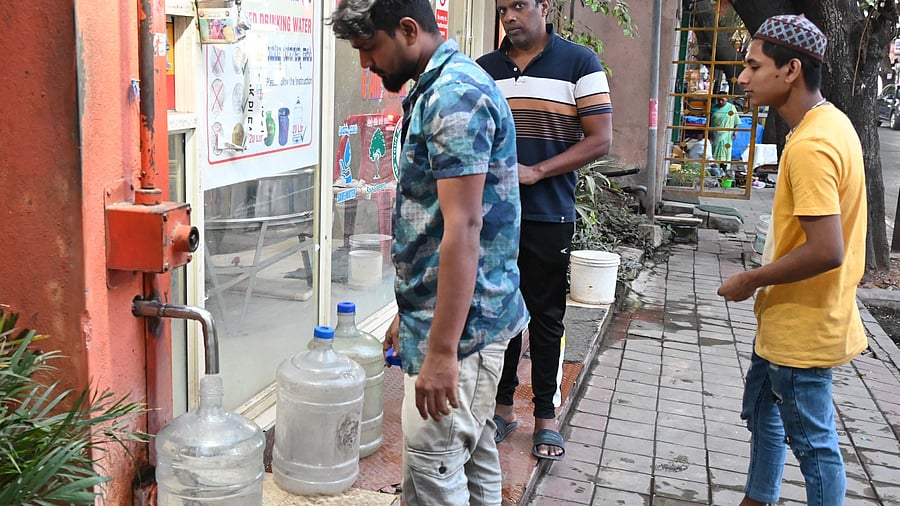
An RO water ATM at Ashwathnagar.
Credit: DH File Photo
Bengaluru: Deputy Chief Minister and Bengaluru Development Minister DK Shivakumar recently announced that the BBMP’s RO water ATMs will be handed over to the BWSSB for management and maintenance.
Shivakumar noted that while the Bangalore Water Supply and Sewerage Board (BWSSB) is responsible for drinking water and sewage management in Bengaluru, the Bruhat Bengaluru Mahanagara Palike (BBMP) currently oversees RO water ATMs.
"If there is water shortage this summer, the BWSSB will have to supply water to these plants, which may lead to coordination issues between the two agencies, causing inconvenience to the public. To avoid this, it has been decided to transfer all BBMP-operated RO plants to the BWSSB," he stated in a letter to the Palike.
Reality check
While the handover process is underway, DH reporters conducted a reality check on RO water plants across the city to assess their management and effectiveness.
The investigation revealed that while RO water ATMs, installed across Bengaluru, provide safe and affordable drinking water at Rs 5 for 20 litres, many operate on erratic schedules and suffer from maintenance issues, forcing residents to travel long distances in search of functioning units.
Some units operate efficiently 24/7, such as those in Jayanagar 4th Block, Ganganagar, and Fraser Town, serving 100 to 200 people daily.
However, others — like those on Cockburn Road, Shivajinagar, Odourpalya, and Chellikere near Hennur — remain closed, forcing locals to buy water from costlier private suppliers at Rs 15 to Rs 20 per 20 litres.
Further visits revealed that several units — such as those at the Jayanagar bus stop (4th Block), Nala Road (Sudhama Nagar), and Narayan Pillai Street — have doubled the price, citing increased electricity costs.
The RO units at Rajkumar Park, St Pius X Church (Banaswadi), and three units in Yeshwantpur are frequently shut during the day.
BWSSB's plan
How does the BWSSB intend to manage these RO water units, especially as groundwater levels hit an all-time low?
Speaking to DH, a senior BWSSB official stated that, after preliminary discussions with the BBMP, the first step is to compile a list of all functioning and non-functioning RO plants and gather details about the tendering process.
"Once the BBMP provides these details, we will develop our own mechanisms to manage the RO water units," the official said.